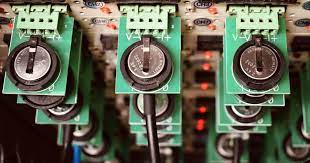
Breaking News
 Closing in on How Charlie Kirk Was Assassinated
Closing in on How Charlie Kirk Was Assassinated
 Here's a little song I just wrote. Dedicated to Al Gore.
Here's a little song I just wrote. Dedicated to Al Gore.
 Judge Blocks Executive Order Tightening Voter-registration Requirements
Judge Blocks Executive Order Tightening Voter-registration Requirements
 ALEX JONES' EXCLUSIVE EPSTEIN DOJ MEGA DOCUMENT DUMP ANALYSIS:
ALEX JONES' EXCLUSIVE EPSTEIN DOJ MEGA DOCUMENT DUMP ANALYSIS:
Top Tech News
 Critical Linux Warning: 800,000 Devices Are EXPOSED
Critical Linux Warning: 800,000 Devices Are EXPOSED
 'Brave New World': IVF Company's Eugenics Tool Lets Couples Pick 'Best' Baby, Di
'Brave New World': IVF Company's Eugenics Tool Lets Couples Pick 'Best' Baby, Di
 The smartphone just fired a warning shot at the camera industry.
The smartphone just fired a warning shot at the camera industry.
 A revolutionary breakthrough in dental science is changing how we fight tooth decay
A revolutionary breakthrough in dental science is changing how we fight tooth decay
 Docan Energy "Panda": 32kWh for $2,530!
Docan Energy "Panda": 32kWh for $2,530!
 Rugged phone with multi-day battery life doubles as a 1080p projector
Rugged phone with multi-day battery life doubles as a 1080p projector
 4 Sisters Invent Electric Tractor with Mom and Dad and it's Selling in 5 Countries
4 Sisters Invent Electric Tractor with Mom and Dad and it's Selling in 5 Countries
 Lab–grown LIFE takes a major step forward – as scientists use AI to create a virus never seen be
Lab–grown LIFE takes a major step forward – as scientists use AI to create a virus never seen be
 New Electric 'Donut Motor' Makes 856 HP but Weighs Just 88 Pounds
New Electric 'Donut Motor' Makes 856 HP but Weighs Just 88 Pounds
 Donut Lab Says It Cracked Solid-State Batteries. Experts Have Questions.
Donut Lab Says It Cracked Solid-State Batteries. Experts Have Questions.
Porous membrane saves high-density lithium metal batteries from failure

Scientists at Germany's Friedrich Schiller University in Jena have now demonstrated how a finely tuned carbon membrane can prevent these types of batteries from failure, and enable them to be safely charged over hundreds of cycles.The major problem holding back the development of lithium metal batteries, which could store as much as 10 times the energy of today's lithium-ion batteries, is the formation of needle-like structures called dendrites. During charging, as the lithium ions move between the battery's two electrodes, lithium atoms build up on the negative electrode, known as the anode. This accumulation leads to spiky dendrites that can pierce the separator between the electrodes and cause the battery to short circuit and fail.



